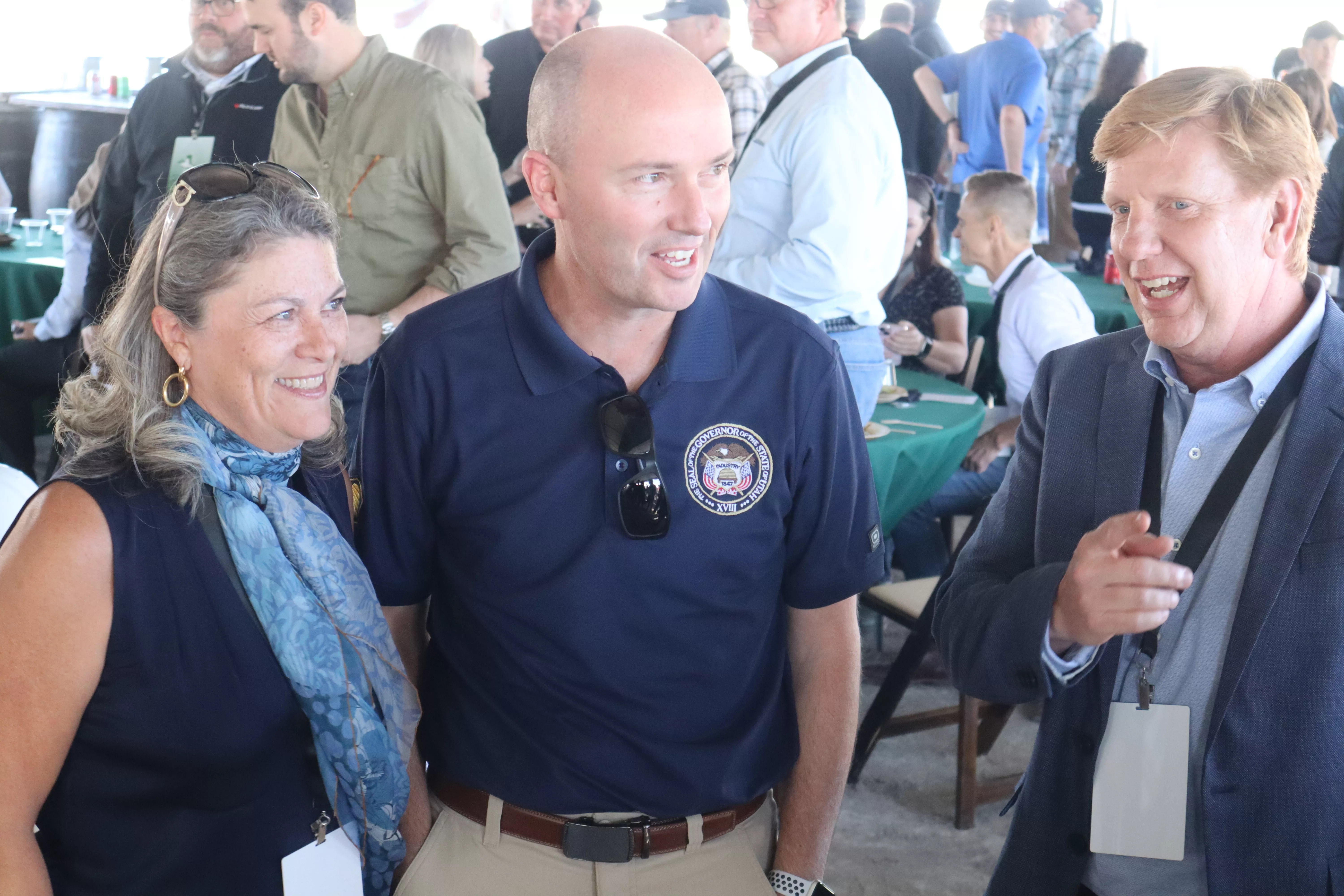
Oftentimes it feels like rural areas are forgotten by both state and federal governments. This is no exception in Utah, where it feels like legislation is often geared toward benefiting the Wasatch Front, leaving areas like Carbon and Emery County in the dust. Hearing these concerns, Castle Country Radio spoke with Utah Gov. Spencer Cox to gain insight into what problems he sees in rural areas and what the state is doing to fix them.
One major topic that comes up consistently is energy and energy production. A global shift away from coal has left many Utahns concerned with what might become of an area with a history engraved in coal. “We have a huge energy shortage in our country right now, and in the state of Utah. We need to double our energy production over the next 10 years. We are an all of the above state. We’ve got our amazing coal resources, and we need to keep those going.” explained Cox,” We’ve got incredible natural gas opportunities here, and we have these renewable opportunities.”
Gov. Cox also discussed the topic of solar energy, with the Green River Energy Center celebrating a groundbreaking ceremony for one of the largest solar projects in the United States. “This isn’t a solar field that’s just being built for one company or one data center. This is for the people of Utah, and it’s going to make a big difference having that diverse energy portfolio in our state is going to make us more competitive and keep our power prices low.”
Another issue that the Governor spoke on was the housing crisis faced by the state. “For the first time, we’re feeling it in rural Utah. We’re feeling it in Emery and Carbon and Sevier. So, we have to build more homes. That’s the answer.” stated Gov. Cox,” We have the resources to do that. We just have to make sure we have the right incentive structure in place …Starter homes are important for a reason, and we just don’t build enough starter homes in this state.”
Cox went on to detail the state’s plan to solve the crisis,” we’re working very closely with developers to start building more starter homes. We want to get homes under $300,000 so that people can afford to own a home again, and we want to do that right here in Emery and Carbon counties.”
We then asked Gov. Cox being from rural Utah, what problems he sees our communities facing and how he aims to solve them in his current and potential future administration. “ It really is about economic development and economic opportunity … Instead of incentivizing companies to move to the Wasatch Front, we’re changing that and we’re looking more at rural opportunities. We want companies, when they’re looking to expand when they’re looking to come to Utah, we want them to consider coming to rural Utah. We received more investments from companies in rural Utah in the past year than the previous five years combined.”
The last topic Cox covered was how by aiding rural communities, the entire state moves forward. “I had this experience with the legislator many years ago when I was in the legislature who was from the Wasatch Front who said, ‘ Why should I care about rural Utah?’ And I said, like, I can’t think of any reason you would care about rural Utah. I mean, unless you care about your energy, your food, your water, your recreation. When rural Utah is strong, the rest of the state is strong.” Cox continued,” I mean, I know I’m biased because I’m from there, but I love our people. We’re resilient. We know how to work hard and we’re innovative because we’ve had to figure it out our whole lives. Those are the things that the businesses need and that our economy needs to expand.”
Ending our conversation, Cox stated,” I just want to thank your listeners for what they’re doing to make Utah the best state in the nation. I’m very proud of our state and grateful for the accolades we’re receiving. We have some problems, we’re working on those, but we can solve those problems together.”
